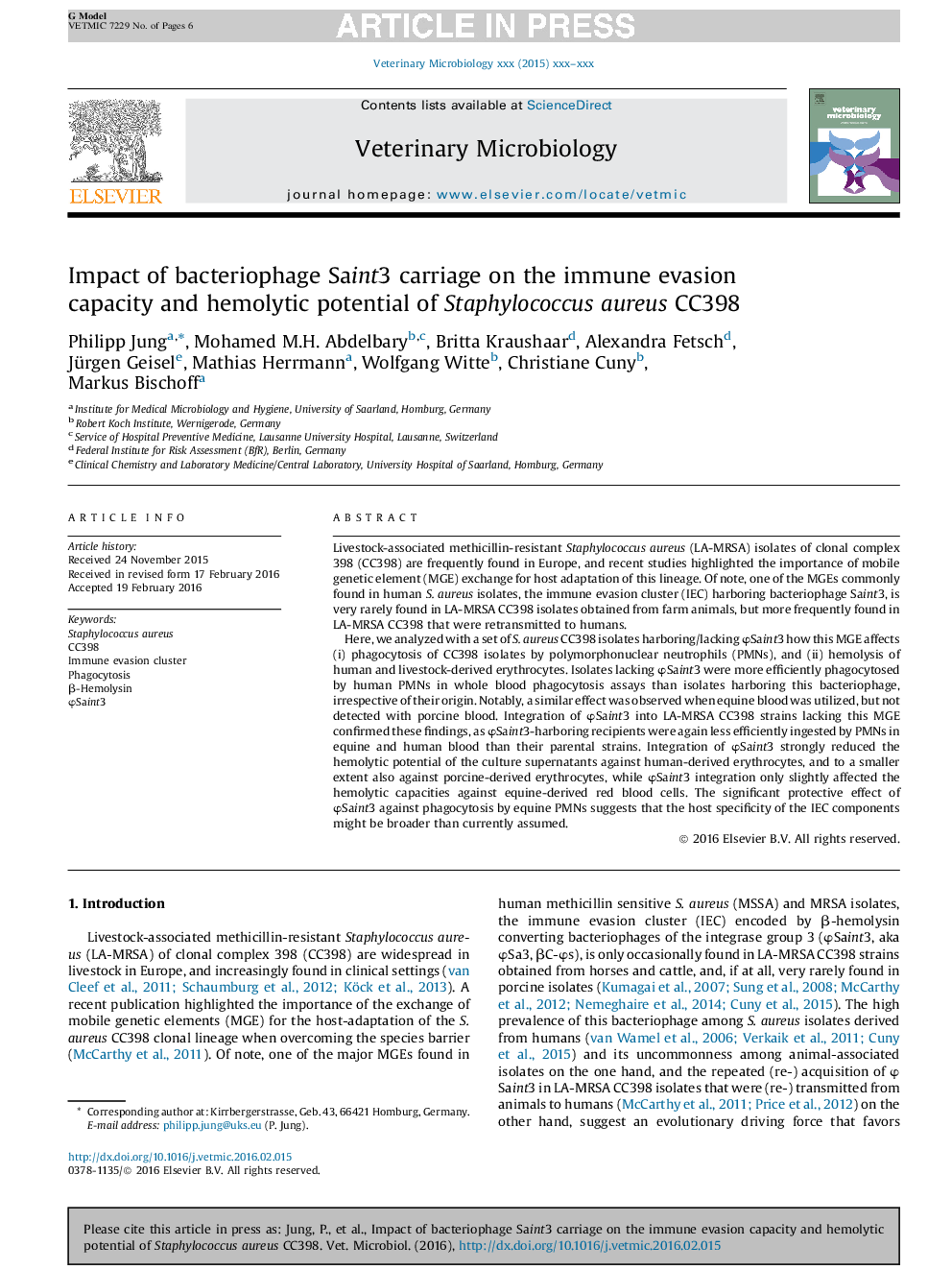| Article ID | Journal | Published Year | Pages | File Type |
|---|---|---|---|---|
| 5545363 | Veterinary Microbiology | 2017 | 6 Pages |
Abstract
Here, we analyzed with a set of S. aureus CC398 isolates harboring/lacking ÏSaint3 how this MGE affects (i) phagocytosis of CC398 isolates by polymorphonuclear neutrophils (PMNs), and (ii) hemolysis of human and livestock-derived erythrocytes. Isolates lacking ÏSaint3 were more efficiently phagocytosed by human PMNs in whole blood phagocytosis assays than isolates harboring this bacteriophage, irrespective of their origin. Notably, a similar effect was observed when equine blood was utilized, but not detected with porcine blood. Integration of ÏSaint3 into LA-MRSA CC398 strains lacking this MGE confirmed these findings, as ÏSaint3-harboring recipients were again less efficiently ingested by PMNs in equine and human blood than their parental strains. Integration of ÏSaint3 strongly reduced the hemolytic potential of the culture supernatants against human-derived erythrocytes, and to a smaller extent also against porcine-derived erythrocytes, while ÏSaint3 integration only slightly affected the hemolytic capacities against equine-derived red blood cells. The significant protective effect of ÏSaint3 against phagocytosis by equine PMNs suggests that the host specificity of the IEC components might be broader than currently assumed.
Related Topics
Life Sciences
Agricultural and Biological Sciences
Animal Science and Zoology
Authors
Philipp Jung, Mohamed M.H. Abdelbary, Britta Kraushaar, Alexandra Fetsch, Jürgen Geisel, Mathias Herrmann, Wolfgang Witte, Christiane Cuny, Markus Bischoff,
